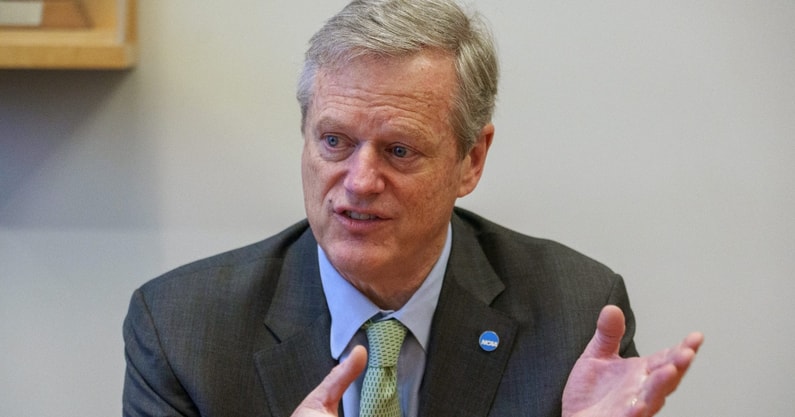Charlie Baker pens letter to NCAA membership after House v. NCAA settlement approval

In wake of Judge Claudia Wilken’s order granting final approval of the House v. NCAA settlement, NCAA president Charlie Baker penned a letter to membership. He walked through the next steps once the agreement goes into place, as well as what the landmark moment means for the future of college athletics.
Baker called final approval a “new beginning” for college sports now that revenue-sharing is on the way, as well as roster limits. Schools will soon be able to directly share up to $20.5 million with athletes in the first year of the settlement agreement, and that figure will go up 4% each year for 10 years.
Judge approves landmark House v. NCAA settlement
While April’s final approval hearing was a date many circled, Baker said Friday will be the moment the “new beginning” for the NCAA. He also noted the trouble enforcing NIL rules and the way the landscape transformed as a result.
“Many looked to April’s hearing about the House settlement as a culmination of sorts, but the court’s final approval of the settlement in fact marks a new beginning for Division I student-athletes and for the NCAA,” Baker wrote. “For several years, Division I members crafted well-intentioned rules and systems to govern financial benefits from schools and name, image and likeness opportunities, but the NCAA could not easily enforce these for several reasons.
“The result was a sense of chaos: instability for schools, confusion for student-athletes and too often litigation. Sometimes member schools even supported that litigation — some of which spurred hastily imposed court orders upending the rules.”
Top 10
- 1New
Vince Marrow
Kentucky assistant to Louisville
- 2Hot
SEC Football predictions
ESPN predicts order of finish
- 3
Dick Vitale
Ranks Top 12 teams
- 4
Cale Stricklin
Plans to leave Auburn baseball
- 5Trending
'Save college sports'
Politician pleads with Trump
Get the On3 Top 10 to your inbox every morning
By clicking "Subscribe to Newsletter", I agree to On3's Privacy Notice, Terms, and use of my personal information described therein.
As a result of the settlement’s final approval, the College Sports Commission has been formed. The expectation is Major League Baseball executive Bryan Seeley has been named CEO, and the commission will take on a key role in creating stability following approval.
However, Charlie Baker also noted the NCAA will still have a role in regulation of other areas. Additionally, the NCAA will take the lead on paying back damages as part of the settlement.
“Beyond the rules that will be managed by the defendant conferences, Division I will continue to regulate in key areas (e.g., eligibility, playing seasons, sports betting and minimal recruiting rules) while prioritizing educational success through setting and monitoring academic standards,” Baker wrote. “The NCAA will finance the back damages portion of the settlement. To do that, we are both reducing costs and generating more revenue, all while investing in the student-athlete experience.
“Together the NCAA, the defendant conferences and the Division I membership have identified the existing NCAA rules that must change to reflect the settlement. These include replacing scholarship limits with roster limits — a change that will enable schools to vastly increase the scholarship opportunities student-athletes receive and potentially double the number of athletics scholarships made available to women.”